Wednesday Feb 18, 2026
Wednesday Feb 18, 2026
Tuesday, 11 December 2018 00:38 - - {{hitsCtrl.values.hits}}
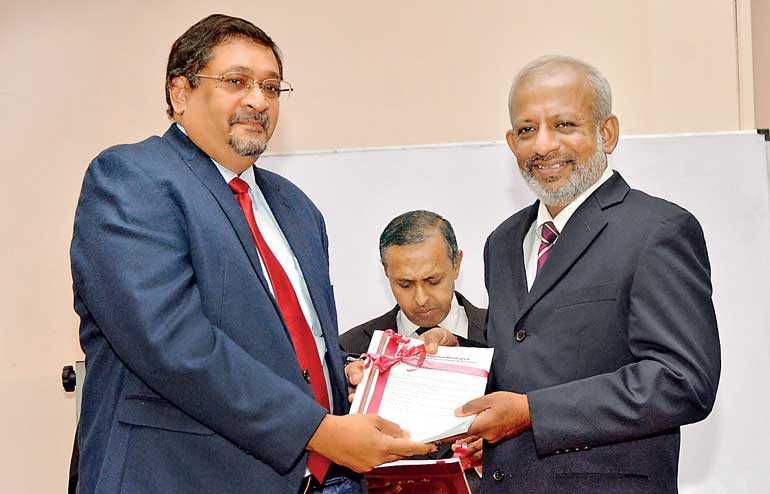
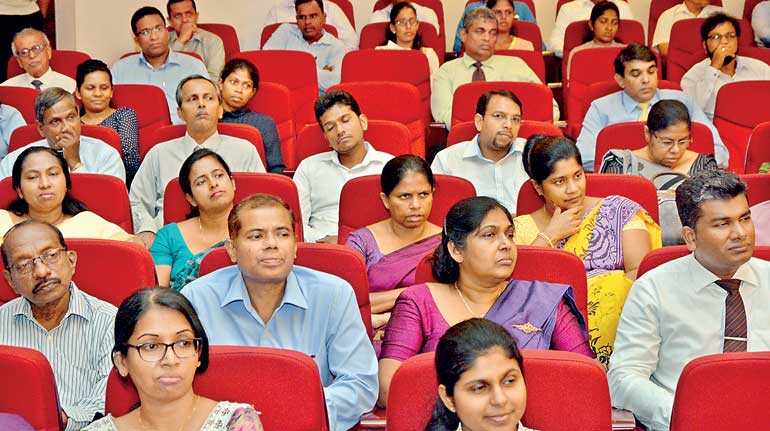
By Charumini de Silva
Top academics yesterday pointed out that integration of research and technology which is somewhat alien to the accounting profession needs to be inculcated into the curriculum to remain relevant and face disruption amidst unknown challenges in the digital era.
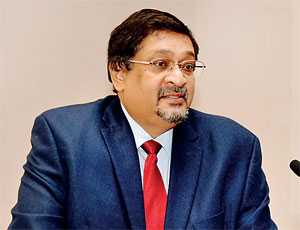 |
CA Sri Lanka Vice President Manil Jayasinghe |
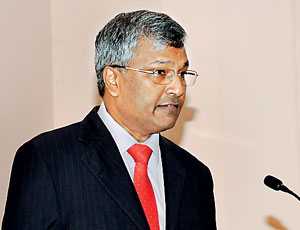 |
CA Sri lanka Research Committee Chairman Nishan Fernando |
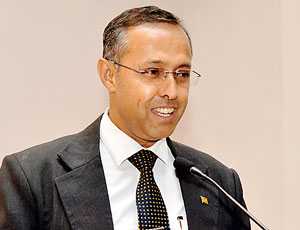 |
Keynote Speaker Prof. Kapila Perera |
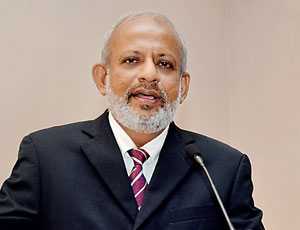 |
Gust of Honour Dissabandara |
“Research is somewhat alien to accountants. To build a learned profession for the future, we need a purposeful integration of accounting research into education, practice for students, accounting practitioners as well as for educators. We need to move away from being a vocation to being a learned profession,” said Institute of Chartered Accountants (CA) Sri Lanka Vice President Manil Jayasinghe, addressing at CA Sri Lanka’s second Research Symposium held yesterday.
The one-day conference organised by CA Sri Lanka brought together a cross-section of accounting professionals who shared their research findings on contemporary issues facing the accounting and finance profession including corporate governance, forensic accounting and accounting education.
He pointed out that the future of the accounting profession depends not only on technical and financial knowledge, but also by inculcating the importance of research, technology and the ability to face disruption amidst unknown challenges that unveil when they takeover professional duties.
Jayasinghe outlined research, education and practice as key ingredients in making a learned profession while insisting on the need to work in sync.
Noting that accounting professionals across the globe today face significant changes and challenges with the advent of disruptive technology and digitisation, he highlighted the importance of being relevant and looking at the changes in an optimistic manner.
“Everyone seems to look at the changes negatively or challenging, but we need to change ourselves to look at them positively. We always believed accounting to be inherently human, but it has now been automated. We have come a long way from the abacus to calculators to artificial intelligence, blockchain, bitcoin and data analytics that are impacting all of us. As accountants, we must remain relevant and meet these challenges head-on instead of falling victims to it,” Jayasinghe stressed.
Citing Facebook, Alibaba, Uber, Airbnb and Amazon as innovations that have created the most unthinkable forms of disruption and innovative business models, he said these have changed the dynamics of businesses and every profession including accounting.
While corporate governance, accounting education and forensic accounting are no doubt pertinent in the current context, he said accounting education will be of paramount importance as the future of the profession depends on the education they offer to aspiring accountants.
“As the main accounting body in Sri Lanka, we must give leadership to pertinent matters such as accounting education, research skills affecting in relation to our profession especially in the midst of increasing challenges and complexities for accounting profession,” Jayasinghe added.
CA Sri Lanka Research Committee Chairman Nishan Fernando said research is an area which is somewhat lacking in most professional accounting curriculum which should be included in going forward to be relevant.
“In developed countries, professional accounting courses also may not have the research element, but that is for a good reason that those are postgraduate courses and the entry level is graduate qualification. The students are supposed to have developed the skills in those countries in their undergraduate studies. However, in our curriculum, we used to follow the best in the developed countries, but sometimes without realising that our entry level is not graduate. As a result, we find that development of research skills in our members and our students is an important element,” he added.
Delivering the keynote, University of Moratuwa Vice Chancellor Prof Kapila Perera emphasised the importance of financial education. “Financial education is not only important for profit making corporates, but also for individuals, companies and countries to remain successful,” he said.
He also said that there is a greater need for forensic accounting in Sri Lanka in all spheres.
Guest of Honour University of Sri Jayewardenepura Department of Finance Faculty of Management Studies and Commerce Prof Hareendra Dissabandara underscored the key reasons for Sri Lanka’s slow economic growth and stressed the need to formulate, coordinate, implement and monitor national economic policies through consultation of all stakeholders.
Alongside this conference, CA Sri Lanka also launched the second volume of the Research Journal which contains the research papers presented at this conference. Since its debut journal, this initiative has opened new avenues for CA members, CA students and School of Accounting and Business graduates to engage in research and publish their research papers in a recognised research journal.
Pic by Upul Abayasekara